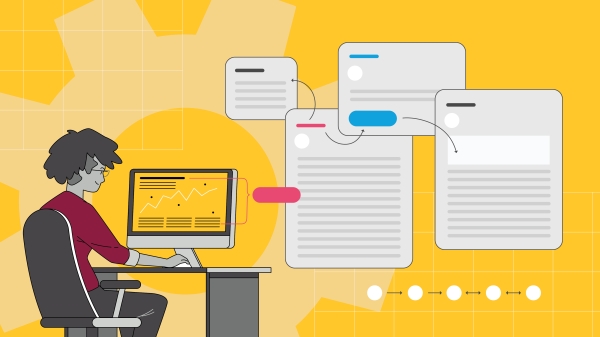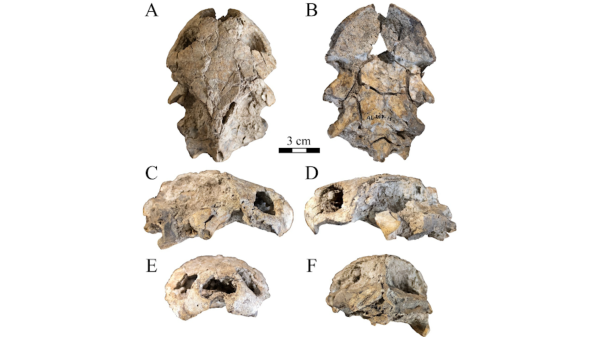Rapid artificial intelligence advancements have many wondering how is AI is currently impacting our lives and our collective futures. To engage students in shaping this complex future, Arizona State University's Lincoln Center for Applied Ethics is launching a class in fall 2023 on the human impacts of AI.
The course, called Human Impacts of Artificial Intelligence, will be led by the Lincoln Center’s Assistant Director, Gaymon Bennett, and Erica O’Neil, a research program manager. Throughout the semester, students will examine all the ways AI impacts us — from its ethical and cultural implications to its influence on politics and the economy.
“Students are entering into a world rapidly being shaped by artificial intelligence,” O’Neil said. “This class will help them think critically about how that is already happening, and what they can do to advocate for the type of future they want to inherit.”
The course will allow students to work hands-on with AI tools, identify how machine learning and algorithms are shaping their lives and examine those impacts through community-oriented research.
“Machine learning is integrated into so many aspects of our life already in really innocuous ways. Teaching students to recognize and be technical stewards over how they engage with that is crucial," O'Neil said.
Bennett and O’Neil have been developing the curriculum for more than a year, in community with and funded by the National Humanities Center Responsible Artificial Intelligence Curriculum Design project.
The class also builds on topics identified by undergraduate students conducting supervised research with O’Neil over the course of the past year, along with a cohort of ASU Online students engaged in the same endeavor with Sean Kenney, the Lincoln Center's education program manager.
This class comes at a time when emerging technologies in AI are changing at an exponential pace, calling into question our previous conceptions of AI and its role in everyday life. In October 2022, the White House released the Blueprint for an AI Bill of Rights and is now discussing ways in which AI tools like ChatGPT may need to be regulated.
“We need humanities students to be digitally literate around these technologies, now more than ever given the scale of AI’s impact — particularly as it’s already being integrated with existing tech platforms,” O’Neil said. “Siloing this competency in technical, upper-division STEM majors cuts off so many voices from ethical discussions around how these technologies should shape our future.”
The Lincoln Center’s mission is to empower students, faculty, entrepreneurs and the community to examine the impact of technologies in our lives with the goal of designing a future keyed to human flourishing. For more information or to enroll in this course, visit the class search page or go to the Lincoln Center’s website.
More Science and technology

When facts aren’t enough
In the age of viral headlines and endless scrolling, misinformation travels faster than the truth. Even careful readers can be…

Scientists discover new turtle that lived alongside 'Lucy' species
Shell pieces and a rare skull of a 3-million-year-old freshwater turtle are providing scientists at Arizona State University with…

ASU named one of the world’s top universities for interdisciplinary science
Arizona State University has an ambitious goal: to become the world’s leading global center for interdisciplinary research,…
